Table of Contents
Diarrhea is a common ailment experienced by many Filipinos, especially those living in areas with poor sanitary conditions. It can be caused by many factors, such as contaminated water and food, certain medications, or certain illnesses. This article will discuss the home treatments for diarrhea in the Philippines, including preventive measures and cures. It will provide an overview of how to identify and treat cases of diarrhea, as well as advice on preventing future occurrences.
Overview of Diarrhea in the Philippines
Diarrhea is a common medical issue in the Philippines, with a prevalence rate of 8.39%. Diarrhea is defined as three or more loose or liquid stools per day and can be caused by viral, bacterial, and parasitic infections. It can also be caused by food intolerance and certain medications. In the Philippines, diarrhea is one of the leading causes of morbidity and mortality among children under five years old.
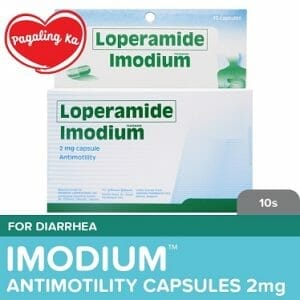
The primary contributors to diarrhea in the Philippines are poor hygiene and lack of access to clean drinking water, which can lead to contamination from fecal matter. Contaminated foods are another major cause of diarrhea in the Philippines due to inadequate food safety practices, such as not washing hands after contact with raw foods or not properly cooking meat products. Additionally, public health campaigns that focus on proper handwashing techniques may help reduce rates of diarrheal illness in this country. Lack of access to clean drinking water and hygiene contributes to a high prevalence of diarrhea in the Philippines. Based on data from the World Health Organization (WHO), around 70% of the Philippine population has access to safe drinking water, which is lower than the global average of 91%.

Causes of Diarrhea in the Philippines
Diarrhea is a common gastrointestinal disorder that can be caused by various factors. There are many potential causes of diarrhea, some of which may require medical treatment if left untreated. It is important to understand the underlying cause of your diarrhea to determine the best course of action and prevent any serious complications from arising.
The most common cause of acute diarrhea is an infection with viruses, bacteria, or parasites. Viral infections such as norovirus can lead to watery stools and stomach cramps within one to two days after ingesting contaminated food or water. Bacterial infections like salmonella and E. coli are usually picked up through contact with animals or contaminated surfaces and food products, causing symptoms such as fever, abdominal pain, and bloody stools.
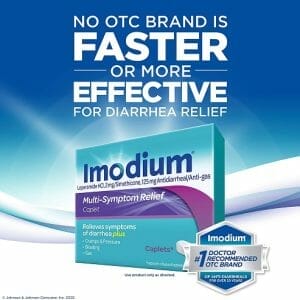
Signs and Symptoms of Diarrhea Among Filipinos
This condition can cause discomfort and may lead to dehydration if not treated properly. Recognizing the signs and symptoms of diarrhea can help you determine when it’s time to seek medical attention.
The most noticeable symptom of diarrhea is loose, watery stools that occur more frequently than usual. Other signs include abdominal cramps, bloating, nausea, or an urge to have a bowel movement even when no stool is present. You may also notice an increase in gas passing through your digestive tract, which often accompanies the urge to have a bowel movement. Some people with diarrhea may have mucus in their stools, accompanied by the feeling that the bowels are not completely empty after using the restroom. You may also experience fever, chills, or fatigue, depending on the underlying cause of your diarrhea. Additionally, some people with chronic diarrhea may notice blood in their stool.

Medical Treatments for Diarrhea in the Philippines
Fortunately, there are several medications available to treat it. These include antibiotics such as ciprofloxacin and metronidazole, anti-diarrheal drugs like loperamide;
Diarrhea is a common condition that can be caused by various factors, including infection, food intolerance, and medication side effects. In the Philippines, diarrhea is the leading cause of mortality in children under five years of age. Unfortunately, it is also a condition that can have debilitating effects if left untreated. Fortunately, those afflicted with diarrhea in the Philippines have access to various medicines designed to alleviate the symptoms associated with this condition.
Common over-the-counter medications for treating diarrhea in the Philippines include loperamide and bismuth subsalicylate. Along with rehydration drinks and electrolyte supplements, loperamide slows digestion and reduces stool frequency and water content. At the same time, bismuth subsalicylate acts as an anti-inflammatory agent to reduce swelling of the intestines and pain relief.
For more severe cases, antibiotics may be prescribed to treat bacterial infections that cause diarrhea, such as salmonella or E. coli. Antibiotics are typically prescribed for bacterial infections, while antispasmodics help reduce cramping associated with diarrhea.
Probiotics can help restore balance in the gut microbiome when taking antibiotics or experiencing stress-related digestive issues.
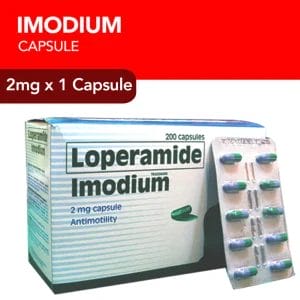
Diet Changes and Treatments for Diarrhea in the Philippines
The most common cause of diarrhea is a foodborne illness, which can also be caused by viruses, parasites, and bacteria. Fortunately, there are many ways to treat diarrhea without resorting to medication. Diet changes are one of the simplest and most effective home treatments for diarrhea in the Philippines.
Making dietary modifications such as avoiding dairy products, eating smaller meals throughout the day, and drinking plenty of fluids can help reduce the symptoms of diarrhea. Fruits with high amounts of pectin, like applesauce or bananas, can help absorb excess liquid from the intestines and stabilize stools in individuals with mild cases of diarrhea. Eating foods high in fiber and easy to digest, such as bananas, rice, applesauce, and toast, can help slow down bowel movements and allow your body to absorb more water from stools. Additionally, limiting your intake of dairy products may help reduce symptoms associated with lactose intolerance, which is known to cause diarrhea in some individuals. Additionally, probiotic foods such as yogurt or kimchi may help restore good bacteria levels in an individual’s gut, which could ease digestion issues associated with diarrhea.

Home Treatments for Diarrhea in the Philippines
In the Philippines, home remedies are often used to help relieve the symptoms of diarrhea. These natural treatments typically use simple ingredients found in most households and are designed to reduce the severity and duration of the illness.
For mild cases of diarrhea, boiled rice water has long been used as a remedy. To make this drink, boil four parts water with one part uncooked white rice until soft. Strain it through a fine mesh sieve, then cool it before drinking it up to four times daily. As an alternative, bananas are also believed to be effective for treating diarrhea due to their high pectin content, which helps bind loose stools together. Bananas should be mashed into a paste and taken twice daily until symptoms subside. A more traditional method for curing diarrhea involves drinking soup made from sliced banana stems. Banana juice is also a popular remedy, although it should only be given to children who can tolerate it without vomiting, as some people are allergic to bananas.
One common home remedy for diarrhea in the Philippines is coconut water. Coconut water helps restore electrolyte balance, which can be depleted due to excessive diarrheal stools. It also has natural antibacterial properties that help fight off harmful bacteria in the intestines. Additionally, coconut water contains potassium, magnesium, and other essential minerals that may aid digestion and reduce dehydration caused by diarrhea.
Another popular folk remedy for diarrheal symptoms is ginger tea or ginger honey syrup. Ginger works as an anti-inflammatory agent and has been found to reduce stomach pain and nausea associated with diarrhea. Some of these remedies may prove to be very effective for treating diarrhea. However, seek immediate medical attention if you are experiencing diarrhea and vomiting or watery stools with blood in them. Diarrhea can also be caused by a severe infection that requires antibiotics.
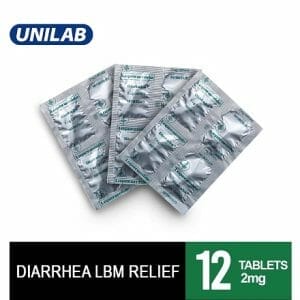
Diarrhea Prevention Strategies for Filipinos
Diarrhea is a common digestive disorder in the Philippines, caused by various factors such as poor sanitation, contaminated food and water, and bacterial infections. The best way to prevent diarrhea in the Philippines is to adopt good hygiene practices and follow a healthy diet.
Good hygiene is essential for preventing diarrhea. This includes washing hands with soap before preparing and eating any food, after going to the toilet, or after touching animals or waste materials. It’s also important to keep food preparation surfaces clean and avoid contact with drinking water that may have been exposed to contamination. Additionally, always cook food thoroughly before eating it and avoid consuming raw meat, eggs, or fish.
A balanced diet rich in fiber-rich foods can also help reduce the risk of developing diarrhea in the Philippines. It’s best to drink only bottled or boiled water while in the Philippines. Avoid ice cubes, which may have been made from tap water and can cause diarrhea.
During pregnancy, it’s especially important to avoid eating undercooked meat and raw eggs. Additionally, make sure food is cooked properly and avoid eating unpasteurized dairy products. If you have access to a refrigerator, store food below five degrees Celsius (41F) or freeze foods that need storage above this temperature.

When to See a Doctor in the Philippines
Diarrhea is a common digestive problem that can cause abdominal pain, frequent watery stools, and general discomfort. If you have severe diarrhea, it’s important to understand when to see and talk to your doctor in the Philippines. In some cases, diarrhea can be caused by an infection or other underlying medical condition that requires medical attention.
When should you seek medical help for your diarrhea? If the symptoms last longer than three days or if the watery stools become increasingly worse, it’s best to make an appointment with your doctor as soon as possible. Severe dehydration due to prolonged bouts of diarrhea can have serious side effects, so it is important to stay hydrated and get medical assistance if needed. Additionally, suppose any blood appears in your stool. In that case, you should seek urgent medical care since this could indicate a more serious underlying issue, such as an intestinal infection or inflammatory bowel disorder.
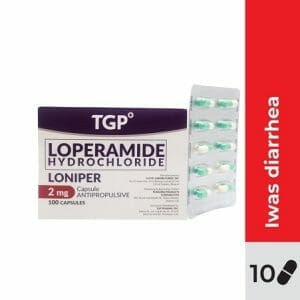
FAQs about Home Treatments for Diarrhea
Here are some frequently asked questions about home treatments for diarrhea and other remedies:
What is the fastest remedy for diarrhea?
Thankfully, several home treatments are available to help reduce diarrhea symptoms and provide relief quickly.
Some of the fastest remedies for diarrhea often involve replacing lost fluids and electrolytes to prevent dehydration. Drinking plenty of water and clear liquids such as ginger ale or broth-based soups can help with rehydration. Consuming foods like bananas, rice, applesauce, toast, or crackers may also offer relief from diarrhea symptoms due to their low fiber content, which is easier for the body to digest. In addition, adding probiotics such as yogurt that contain live bacteria cultures may be beneficial for restoring balance in the intestines.

What are the most effective home remedies for diarrhea?
For mild cases of diarrhea, over-the-counter medications such as loperamide (Imodium) and bismuth subsalicylate (Pepto-Bismol) may effectively reduce the severity of symptoms.
Additionally, increasing your water intake and eating foods high in fiber, such as oatmeal, bananas, applesauce, rice, and potatoes, can help replenish lost fluids and ease digestion. For more severe cases of diarrhea, natural treatments like chamomile tea or probiotics may provide additional relief from symptoms like abdominal cramps or nausea.
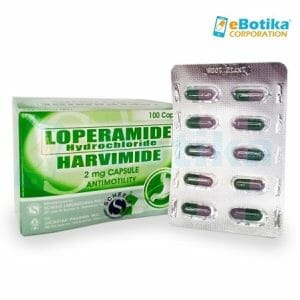
Is a probiotic a good treatment for diarrhea?
For those looking for home treatments, probiotics may be an option worth considering. Probiotics are known to have beneficial effects on digestive health and can help alleviate diarrhea symptoms.
Recent studies have focused on the benefits of probiotics as a treatment for diarrhea. The results show that consuming certain probiotic strains improved stool consistency in adults and children suffering from acute infectious diarrhea and other forms of gastrointestinal issues. Additionally, researchers found that taking these probiotic supplements was generally safe, with few reported side effects.

Do I need to drink a lot of fluid?
If you’re feeling unwell, it’s important to ensure you get enough fluids. Drinking plenty of fluids can be especially beneficial for home treatments for diarrhea. Knowing how much to drink and what types of fluids will help keep your body hydrated and healthy is essential.
Drinking water is the most basic way to stay hydrated when dealing with diarrhea. Water helps replace lost electrolytes while also flushing toxins out of the body. Other beverages, such as sports drinks, coconut water, fruit juice, tea, and broth, can also provide additional nutrients and minerals needed to treat diarrhea effectively at home. It’s important to avoid sugary drinks like soda or coffee, as they can sometimes worsen symptoms.
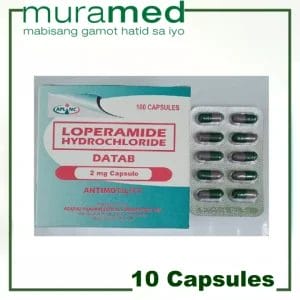
What are the best over-the-counter medicines for diarrhea?
Diarrhea can be an uncomfortable and inconvenient illness. While many cases of diarrhea can be treated with over-the-counter medications, it is important to understand the various options available for home treatments for diarrhea. OTC medicines can help alleviate symptoms such as stomach cramps and watery stools, relieving the discomfort associated with this condition.
Imodium is one of the most commonly recommended medications for treating diarrhea due to its ability to reduce watery stools quickly. It works by slowing down bowel movements to relieve abdominal cramping and bloating associated with acute episodes of diarrhea. Other anti-diarrheal medications include Pepto Bismol, Kaopectate, Lomotil, and others that contain loperamide or bismuth subsalicylate as active ingredients.

What is the fastest way to stop diarrhea?
Diarrhea is a common digestive issue that can be caused by various factors, such as food intolerance or bacterial infections. It is important to stop diarrhea quickly to avoid dehydration and discomfort. Fortunately, there are several home treatments for diarrhea that can help reduce its severity and duration.
The first step in treating diarrhea at home is to replace lost fluids and electrolytes by drinking plenty of water or other fluids such as clear broths, sports drinks, or electrolyte solutions. In addition, eating small amounts of plain foods like toast, bananas, rice, applesauce, and crackers can help ease symptoms like cramping and bloating. Probiotics may also be beneficial for reducing the severity of signs and symptoms associated with diarrhea.
Which type of doctor can treat diarrhea?
When a person experiences diarrhea, it can be uncomfortable and even embarrassing. But with the right medical attention, it is possible to quickly get relief from this condition. Knowing which type of doctor to visit for the best home treatments for diarrhea can help speed up recovery so that life can get back to normal as soon as possible.
A Filipino infectious disease doctor is often the best choice for those seeking home treatments for diarrhea. This type of physician specializes in diagnosing and treating illnesses caused by bacteria, viruses, fungi, or parasites, all of which could cause someone to suffer from bouts of severe diarrhea. The doctor can also advise on preventing future episodes and recommend medications or other forms of treatment that may help ease symptoms while at home.
A Filipino gastroenterologist is another type of doctor who may be consulted regarding home treatments for diarrhea.
Do I need to eat bland food to treat diarrhea?
Many people believe that bland food is the only way to go when it comes to home treatments for diarrhea. But do you really need to eat plain toast and plain yogurt daily? The answer is no. While bland foods can help alleviate diarrhea symptoms, other options are available.
Several home treatments for diarrhea don’t involve eating plain and boring items. For example, probiotic supplements or foods like yogurt containing live active cultures can treat diarrhea. Bananas, rice, applesauce, and toast can also help absorb liquid in the intestines and reduce stool output. Additionally, drinking plenty of fluids—including water, fruit juice, and clear broths—can help replace lost electrolytes from dehydration caused by diarrhea.
What certain foods can help treat diarrhea
Diarrhea can be an uncomfortable and embarrassing condition, but the good news is that certain foods may help alleviate some of the more unpleasant symptoms. Home treatments for diarrhea can be a great way to resolve the issue without resorting to medication.
Certain foods, such as bananas, rice, applesauce, toast, and boiled potatoes, are often recommended as part of a diet known as the BRAT diet (Bananas, Rice, Applesauce, and Toast). These foods are considered bland and easy on the digestive system. Bananas, in particular, contain pectin, which coats the lining of your intestines and helps reduce irritation. Eating these types of food can also help replace lost electrolytes, which may have been depleted due to frequent bowel movements. Additionally, probiotic-rich foods like yogurt or kimchi can help restore your gut’s microbiome balance.
What certain foods to avoid when you have diarrhea?
One of the initial steps is recognizing which foods to avoid that can worsen symptoms or slow down the healing process. Knowing what certain foods to avoid when you have diarrhea is key in quickly resolving this common condition.
Foods that should be avoided with diarrhea include dairy products, caffeine, fried or greasy foods, spicy foods, processed meats like deli meats, alcohol, and sugary drinks. Dairy has lactose, which can worsen diarrhea as it causes increased gas production in your intestines and may even increase cramping. Caffeine can cause dehydration, while fried and greasy foods are difficult for your body to digest. Spicy foods like peppers can worsen your stomach upset, while processed meats contain nitrates, which could irritate your digestive tract further.
What is a brat diet, and can it help treat diarrhea?
A brat diet is a home treatment for diarrhea, and many people find it helpful. Brat stands for bananas, rice, applesauce, and toast—all easily digestible foods that can help with upset stomachs. This diet was first recommended in the olden days to treat children who had diarrhea, but it’s still a popular choice for adults too.
The brat diet allows your body to rest from more difficult-to-digest food while helping replace lost electrolytes and other nutrients. Eating these four simple foods helps reduce the symptoms of diarrhea, such as cramping, nausea, vomiting, and bloating. Additionally, this diet can help replace essential minerals like potassium, which are needed for proper muscle and nerve function.
What types of food can worsen diarrhea?
Diarrhea is one of the most common gastrointestinal ailments, and it can be caused by a wide range of things. However, there are certain types of food that can worsen diarrhea and make it more uncomfortable. Fortunately, there are some home treatments for diarrhea that you can try to help alleviate the symptoms and get back to your normal routine quickly.
Certain foods cause an increase in water to pass through the small intestine, making diarrhea worse. High-fiber foods like beans, broccoli, applesauce, nuts, and seeds should be avoided when suffering from diarrhea. Dairy products such as milk and yogurt also tend to worsen loose stools due to their high-fat content. Greasy or fried foods may also aggravate symptoms because they slow digestion in the stomach, increasing transit time in the intestine.
What are the best and most simple home remedies for diarrhea?
Diarrhea can be a common and uncomfortable medical condition. Fortunately, many home remedies and treatments are available to help alleviate diarrhea symptoms.
For mild cases of diarrhea, it is often recommended to try simple home treatments before seeking medical attention. Some of the best home remedies for diarrhea include consuming plenty of clear liquids such as water, fruit juices, tea, or broth to replace lost electrolytes from dehydration; eating small amounts of BRAT foods (bananas, rice, applesauce, and toast) which are easily digestible; drinking freshly made ginger tea or peppermint tea to soothe irritated intestines; adding probiotics like yogurt to your diet to restore the natural flora in the gut; taking over-the-counter anti-diarrheal medication such as Immodium if necessary; and avoiding high fiber foods that may exacerbate the condition.
How can Filipinos prevent diarrhea?
Diarrhea is a common ailment in the Philippines, with many people contracting the condition each year. While it can often resolve on its own, it is important to take steps to protect yourself and prevent the further spread of the illness. There are several home treatments that Filipinos can use to help reduce their risk of developing diarrhea and manage their symptoms effectively.
The first step to preventing diarrhea is practicing good hygiene habits. This includes washing hands frequently with soap and warm water after using the bathroom or handling food. Additionally, ensure to thoroughly cook any food before eating it, as some bacteria and parasites that may cause diarrhea can be present in raw foods. Finally, avoid contact with anyone diagnosed with diarrhea and those showing symptoms (e.g., fever or abdominal pain).
When avoiding certain foods, can diarrhea disappear immediately?
When avoiding certain foods, can diarrhea disappear immediately? Home treatments can bring immediate relief from diarrheal symptoms. While this approach may not be a substitute for medical care in severe cases of diarrhea, it can help treat milder cases and provide comfort until the condition subsides.
There are many different steps one can take at home to address diarrhea-related issues without the need for prescription medications or other interventions. These include limiting the intake of dairy products, drinking plenty of fluids, increasing fiber intake through fruits and vegetables, and taking probiotics that contain beneficial bacteria. Additionally, over-the-counter antidiarrheal medications may be used when necessary to help reduce symptoms and make individuals more comfortable as they wait out their illnesses.
Final Thoughts: Home Treatments for Diarrhea in the Philippines
In conclusion, diarrhea is a major health concern in the Philippines, particularly among children. Several treatment and prevention strategies can be used to combat it, including improved sanitation practices, handwashing, drinking safe water, proper food preparation and storage techniques, and antibiotics when necessary. Additionally, the government has implemented public health initiatives to help improve access to quality healthcare services. These include improving medication affordability and providing educational programs to raise awareness of diarrhea-causing agents and preventive methods.
Sources: Home Treatments for Diarrhea in the Philippines
- How long does diarrhea lasts? NHS inform
- Oral Rehydration Solutions for the Treatment of Acute Watery Diarrhea – American Academy of Family Physicians
- Diarrhea caused by dehydration: Dehydration and diarrhea – PMC – NCBI
- How to get diarrhea? Johns Hopkins Medicine
- How to get help with diarrhea – Diagnosis and treatment – Mayo Clinic
- Symptoms & Causes of Mild Diarrhea | NIDDK
- Help diarrhea stop: Dos and Don’ts for Quick Relief of Diarrhea | Everyday Health
- Diarrhea is severe when these foods are eaten: What to Eat When You Have Diarrhea – Healthline
- How to Get Rid of Diarrhea Fast: 7 Effective Remedies – K Health
- Watery bowel movements: What Causes Watery Diarrhea & How to Get Fast Relief | Buoy
- Persistent diarrhea: What It Is, Causes & Treatment Options Cleveland Clinic
- Managing antibiotic-associated diarrhea – PMC – NCBI
- Mild symptoms of diarrhea – UCSF Health
- Cases of acute diarrhea: Diarrheal Diseases – Acute and Chronic – GI Org
- Academic research Diarrhea – StatPearls – NCBI Bookshelf
- Diarrhea that lasts for more than a week: Is this normal, causes, and treatment – Medical News Today
- Child has diarrhea for a week: Diarrhea in Children | Johns Hopkins Medicine
- How is diarrhea treated at home: 7 Home Remedies for Diarrhea – Health
- Natural home remedies for diarrhea – 3 Home Remedies for Diarrhea – Verywell Health
- Diarrhea in infants and children – MedlinePlus Medical Encyclopedia
Disclaimer
This website is intended to educate both members of the general public and those working in the medical field on the prevalence, causes, and methods for preventing, diagnosing and treating diseases that affect people throughout their lives. This website’s content is provided solely for informational reasons and is not meant to serve as a substitute for the advice of a qualified medical practitioner.













